The Assassin’s Creed series has undergone a radical shift over the past few years, trading linear stories set in dense urban environments for sprawling RPGs with branching storylines that became further removed from the Assassin Brotherhood with each entry. Assassin’s Creed Mirage, a small-scale prequel showcasing the rise of Valhalla’s Master Assassin Basim, aims to bring the series back to its roots while still incorporating everything that the franchise has learned from its recent trilogy of massive open-world RPGs. Mirage has some great moments that hearken back to the golden age of the series, but everything else in between is an exercise in boredom.
Nothing in Mirage feels earned. While the shorter 15-hour runtime sounded like a breath of fresh air when contrasted with the hundred-hour epics of Origins, Odyssey, and Valhalla, Basim’s story suffers greatly from an overly rushed pacing. There’s no greater example of this than the game’s prologue. It so desperately attempts to recreate the iconic Ezio’s Family scene from Assassin’s Creed 2, only there’s no room for character development or emotional buildup. There’s roughly half an hour from the main menu to the opening tragedy.

It’s an obvious attempt at nostalgia bait that sets the tone for what’s to come. Assassin’s Creed Mirage is filled with shameless “remember when” moments, so much so that there’s even an option to enable the “iconic” color filter from the original Assassin’s Creed game in the settings menu. Since it’s been so long since a traditional Assassin’s Creed entry, Mirage tries hard to be a paint-by-numbers classic Assassin’s Creed game to the point where it’s a detriment to Basim’s story.
Mirage is structured as a series of “investigations,” which serve as large story arcs culminating in major assassinations. After reaching the city of Baghdad, most of these investigations can be tackled in any order. After completing an arc, Basim will ascend to a new rank within the Hidden Ones.
This is a journey from Hidden Ones Initiate to Master Assassin at its core. Echoes of Valhalla’s regional arcs can be felt within each of Mirage’s investigations. Outside of the opening and finale, every arc feels like a filler arc. Baghdad’s Hidden Ones Bureaus are filled with forgettable faces, and the targets themselves are cartoonishly evil nobodies. The story feels like an obligation, rushing you through what little dialogue there is so you can shut up and start stabbing. The assassinations feel like they exist purely to check a box, an extreme overcorrection to strike back at fans who complained about the lack of them in previous games.

The shining jewel of the story is Basim, but the game gives him very few opportunities to express himself. He questions the creed and wrestles with his sense of identity throughout his journey, but nothing really comes of it. There is no arc. Basim ends the game largely unchanged, the only real difference being that he’s a lot better at stabbing and sneaking than he was at the start of his journey.
Basim’s personality is given a chance at life in the Tales of Baghdad and other optional activities throughout the city. These brief character moments show Basim as he really is: a kind, charismatic street kid who just wants to help people, even if he’s in over his head. Still, these moments are few and far between, and Mirage will very quickly remind you of its core tenants of shutting up and stabbing as soon as you get a taste of what could’ve been. Mirage smothers one of the franchise’s most charming faces in an attempt to make him fit the generic mold of “Assassin’s Creed Man.” It forgets that it’s not the hood, but the man under it that made people fall in love with previous protagonists.
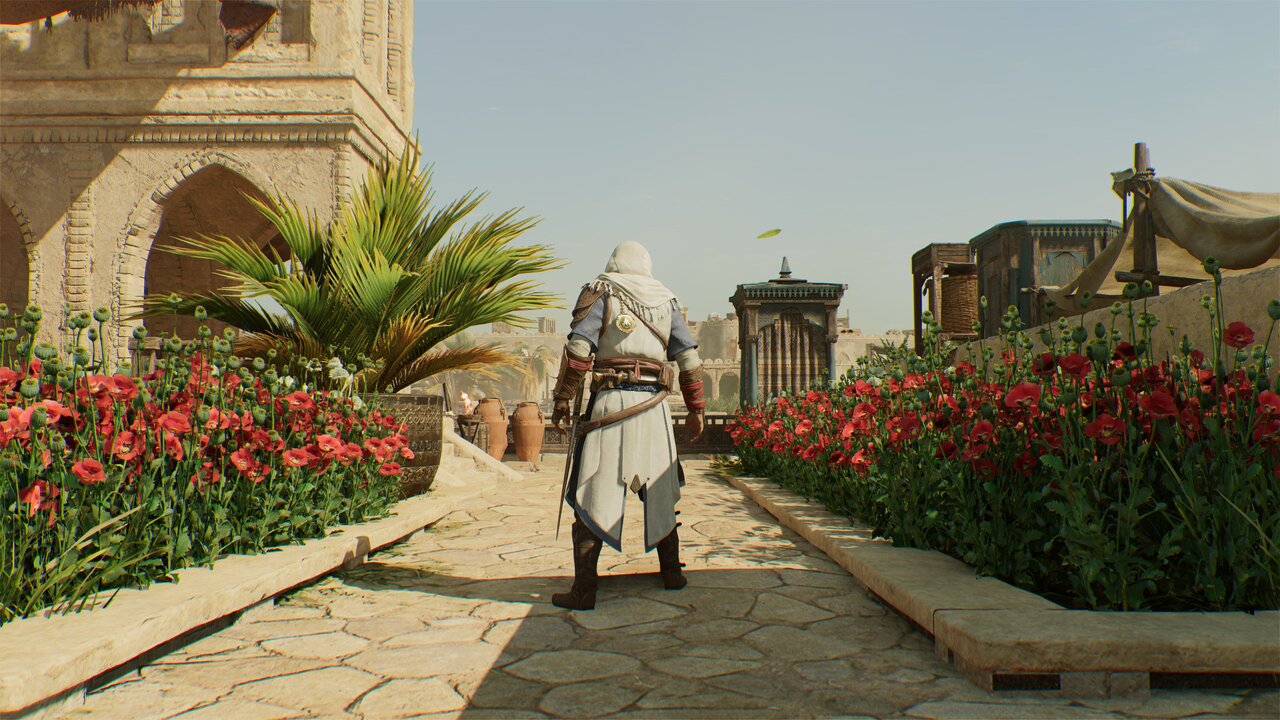
Gameplay is the core pillar of Mirage. It’s a game for players who want back-to-back assassinations without all that “filler” like character development and mission variety in between. There are definitely plenty of assassinations in Mirage, so much so that the act of infiltrating a compound and taking out a target starts to get stale only a few hours in. Basim has such a limited set of tools at his disposal that there’s very little strategy involved outside of the scripted moments in the game’s big “black box” assassination missions, which usually boil down to pickpocketing a key from a guard or bribing mercenaries to create a distraction.
There’s a huge emphasis on stealth this time around. Basim is fragile and direct combat is discouraged, both directly by the game itself and indirectly because fighting feels awful. There’s zero impact to sword swings and the parry — the heart of Mirage’s combat system — feels unacceptably mushy. Sneaking around doesn’t feel much better. The lack of a dedicated cover system makes corner takedowns feel finicky, and the rigid parkour system turns what would be exciting last-second escapes into frustrating detections. Older Assassin’s Creed games had better stealth than this, and they had more satisfying combat on top of that.
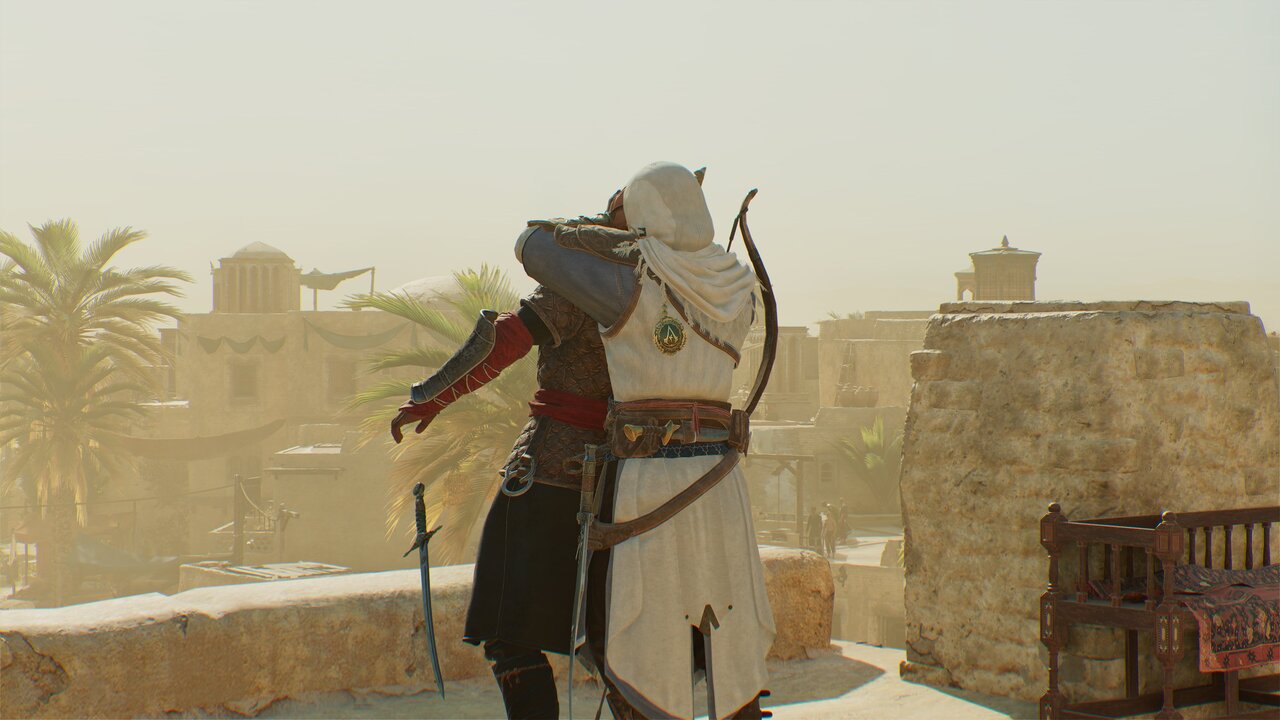
While you’re parkouring between enemy compounds, there are a handful of side activities that may catch your eye throughout the sprawling city of Baghdad. While Mirage’s side content is understandably limited compared to its predecessors, there’s still a disappointing lack of variety. Outside of a very small selection of side quests and optional contracts, you’ll spend most of your time pickpocketing collectibles from NPCs or searching for gear chests throughout the city.

Even though there aren’t many chests and collectibles to find overall (Baghdad only has four districts plus the surrounding wilderness), they still feel ridiculously repetitive. Each gear chest, for example, features the exact same puzzle of figuring out how to unblock a barred door. You’ll get so used to circling around buildings and tossing a knife through an open window that it’ll start to feel like second nature. The gear itself is also lackluster, with only a handful of swords, daggers, and outfits available that provide very minor combat perks.
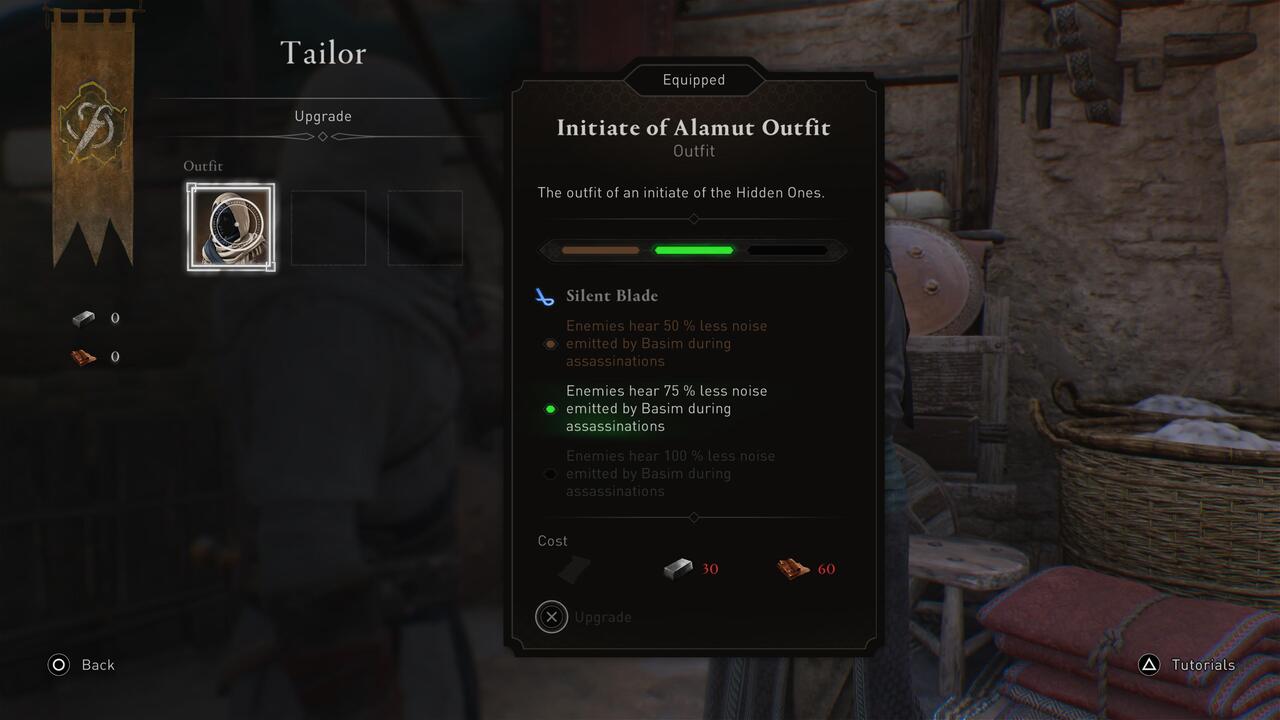
The gear system feels like a holdover from Valhalla, which is disappointing. Basim’s tools like throwing knives and smoke bombs are upgraded with normal crafting components found from chests and rewarded from quests, but weapons and outfits have to be collected from specific gear chests and cannot be upgraded unless you find their upgrade schematics from other chests within the same district. It all feels shoehorned in, an unnecessary system that adds basically nothing to the combat experience.
Still, Baghdad isn’t all bad. It’s one of the best-looking settings the series has ever had. Mirage is a huge graphical step up from Valhalla, and the spectacular lighting and architecture are just begging to be captured in photo mode. Ubisoft’s knack for urban level design and gorgeously realized worlds is on full display here, and everything looks so good that Baghdad is just a fun place to run around in, even if the rewards may not be that worth it.
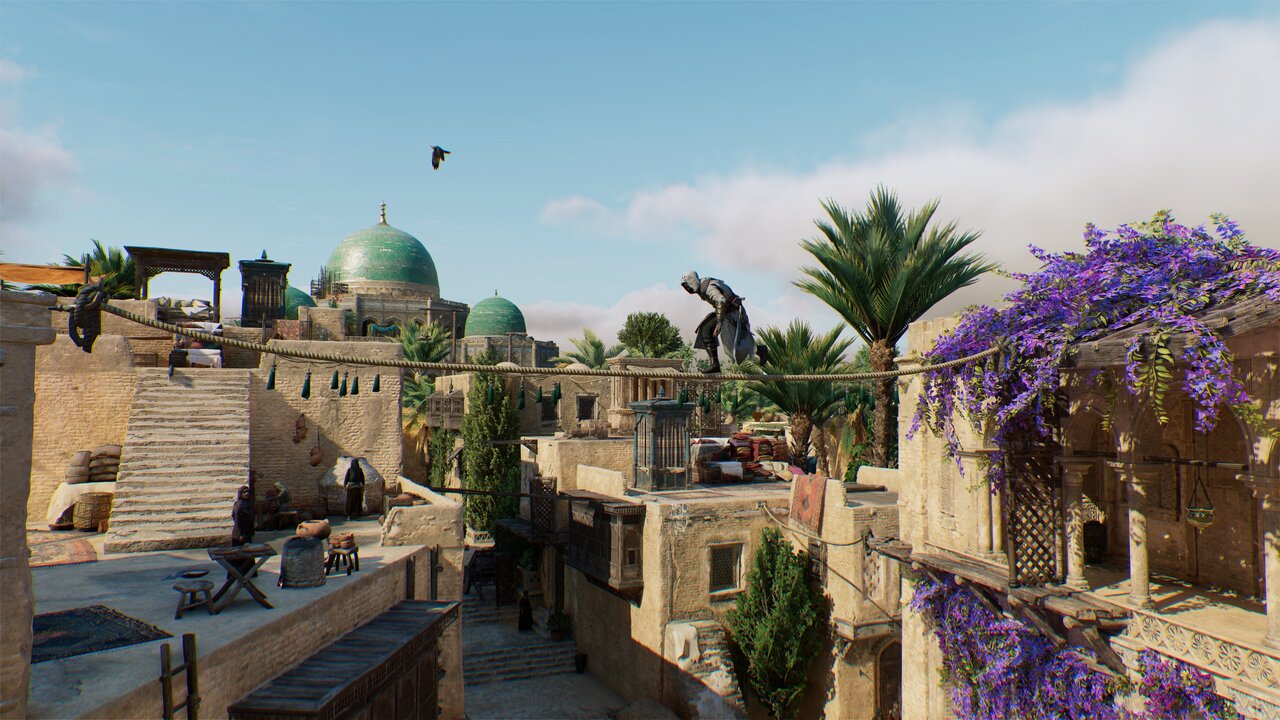
The Verdict
Outside of its stunning setting, Assassin’s Creed Mirage doesn’t have anything exciting or new to offer. It’s a mixture of the worst parts of classic and modern Assassin’s Creed, sacrificing both storytelling and exploration in an attempt to appease fans from both eras. The story takes a backseat to gameplay, which is disappointing since Basim’s personality gets very few opportunities to shine throughout the game’s 15-hour runtime, and the core gameplay loop is repetitive and unsatisfying. There’s still some fun to be had in Mirage’s richly realized world, but as it stands, it’s my least favorite Assassin’s Creed in quite some time.


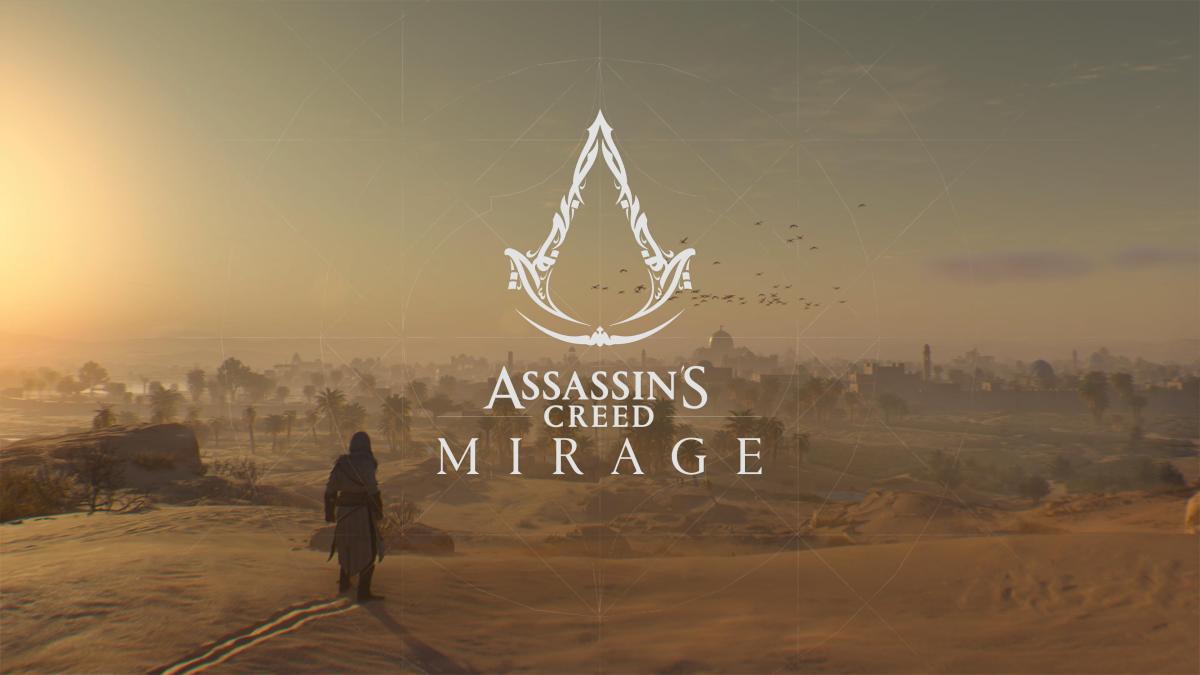









Published: Oct 4, 2023 06:01 am